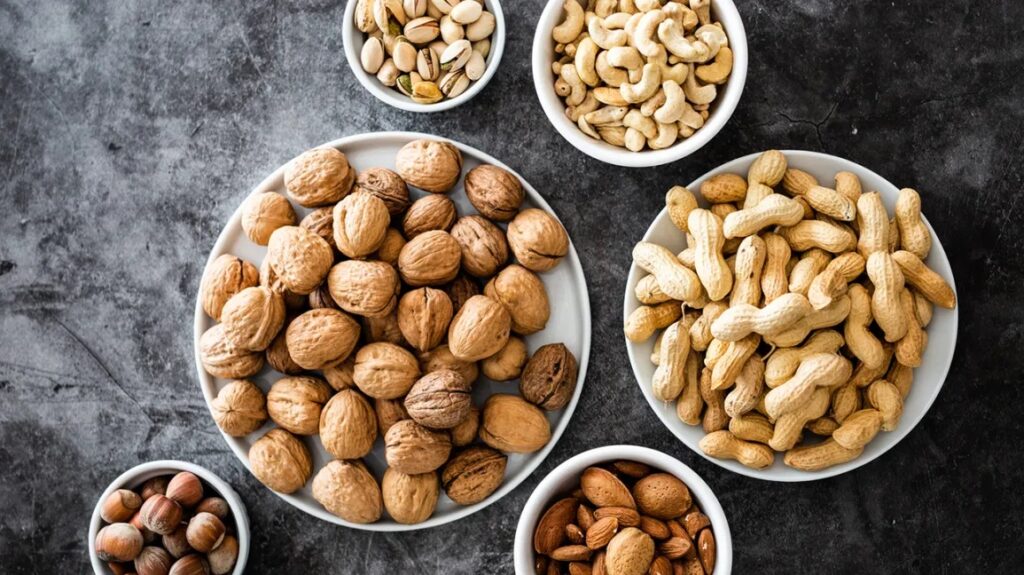Have you noticed that as the temperature drops, our appetite increases? Especially when it is snowing outside, it seems as if our hunger is constantly increasing, and our bodies are not satisfied with anything. As a result, we consume more food, which is usually not very healthy.
Why might this be, though, and what can we do?

The clinical dietitian-nutritionist Cleo Dimitriadou answers our questions and advises us on our winter appetite and our diet when viruses and colds increase.
"The metabolism increases during the winter due to the body's effort to regulate our body temperature and keep it stable. In this way, we get hungrier and more often gain more weight because the extra amount of food we consume is much greater than the additional calorie burning," the nutriotionist said.
"This miscalculation, combined with the limitation of physical activity when the weather gets cold, contributes to an increase in our body weight, and for this reason, we should pay attention to the quality of the food we consume and make an effort to mobilise at every opportunity," Dimitriadou added.
Why is our need for sweets greater in winter?

"The decrease in sunshine during the winter is associated with a decrease in vitamin D in our bodies since vitamin D is largely produced during our exposure to the sun, and its decrease affects our mood. The need for sweets is linked to the production of the hormone serotonin, which 'raises' us psychologically.
"Sweets, however, are not the most appropriate choice because they have a dense caloric composition and easily increase our weight, which is unhealthy and spoils our mood in the long run. The same thing happens with the need for carbohydrates in general.
"So, looking for an alternative is eating foods rich in tryptophan, which helps produce serotonin and is found in chicken, banana and fish.
"In addition to serotonin, dopamine also gives us energy, and increasing levels can be ensured by eating foods containing phenylalanine, such as almonds, avocados and peanuts.
"Of course, we must always keep in mind the precious tripartite, variety-measure-balance. Equally important for our mental health is maintaining stable sugar levels.
"To achieve this, we should avoid sweets, pastries, white bread and chips and prefer foods such as cereals, pasta, rice, whole grain bread, legumes, etc., which affect more moderate the change in sugar and at the same time are rich in fibre and fill us up more."
What foods are good for colds?

"Winter brings various colds or viruses, so shielding our body and boosting our immune system is very important.
"According to scientific research, eating foods rich in vitamin C helps strengthen the immune system. However, it should be noted that the action of vitamin C is more preventive; that is, if a cold has already occurred, it is not particularly effective.
"Foods rich in vitamin C are citrus fruits, kiwi, strawberries, broccoli, cauliflower, peppers, etc. Another vitamin that helps our immune system is vitamin E, which has an antioxidant effect. Vitamin E is found in olive oil, nuts, seafood and cereals.
"Beta-carotene has also been shown to be effective for colds and flu. We find it abundantly in carrots, tomatoes, spinach, lettuce, apricots, etc. The zinc contained in meat and legumes has the same effect.
"Accordingly, reducing saturated fat consumption has a positive effect on colds. Saturated fat is found in butter, cream, fatty meats and dairy products.
"Apart from vitamins, some foods, such as garlic, chamomile, and echinacea, are linked to fighting viruses.
"People who follow very strict and low-calorie diets are more vulnerable to viruses. Therefore, it is very important to try a healthy way of losing weight and adopting the correct way of eating.
"A healthy life helps our immune system, so physical activity limited alcohol consumption and avoiding smoking ensure a stronger body."
READ MORE: Delicious foods that increase cancer risk by 75%.


